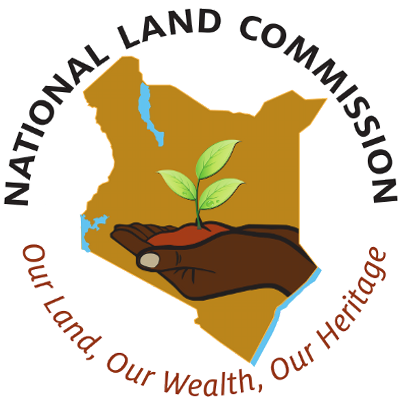Nairobi.
22/10/2024
A team from the Zimbabwe Land Commission (ZLC), led by their Commissioners and Secretary began a three-day visit to the National Land Commission (NLC) of Kenya today for a benchmark and study tour. The objective of the visit is to gain insights into various aspects of land administration in Kenya and understand the roles and responsibilities of the NLC. The discussions focused on key areas such as land governance, legal frameworks, land tenure arrangements, land administration systems, gender inclusion, land disputes, rural land development, and the relationship between the Land Commissions and the Ministry of Lands.
During the visit, the NLC Chairman Gershom Otachi provided an overview of the Commission’s mandate, highlighting the roles of different departments and committees involved in land management in Kenya. This was followed by presentations from NLC Directors and Heads of Departments on specific areas of interest as well as the areas raised by the ZLC team.
The Key Areas of Focus included;
Land Governance; The ZLC delegation explored the level of decentralization in Kenya’s land administration system, examining whether land matters are managed at the provincial or district level. They also inquired about the existence of multiple land authorities or a single authority overseeing all categories of land. The discussion highlighted the strengths and challenges of both centralized and decentralized governance models in managing land effectively.
On Legal and Policy Framework the discussions were on Kenya’s legal framework for land administration focused on its structure and the challenges it faces. The ZLC team sought insights into whether the land policy framework is consolidated or fragmented and the implications of this arrangement for effective land governance.
The ZLC team also sought to understand how land is accessed in Kenya and the different types of land tenure regimes, including freehold, leasehold, and community land. They discussed how these arrangements support landholders’ rights and contribute to equitable access to land across various categories.
They further inquired about the relationship between Land Commissions and the Ministry of Lands. A significant area of discussion centered on the relationship between the NLC and the Ministry of Lands, focusing on the separation of mandates to avoid duplication of functions. The ZLC team sought to understand how Kenya delineates responsibilities between these two entities, ensuring that each focuses on its core functions. This separation helps streamline processes, enhances efficiency, and minimizes overlaps in the management of land-related matters.
The ZLC delegation also explored how inclusive Kenya’s land administration system is with respect to women, youth, and other special groups. They discussed the legal frameworks that enable women to own land, challenges posed by cultural norms, and efforts to ensure equitable access. The team was also interested in understanding strategies used to encourage youth participation in agriculture amidst increasing urbanization and technological development.
The ZLC team delved into the configuration of land disputes in Kenya, including conflicts over land use, disputes between individual landholders, and communal conflicts. The NLC shared the mechanisms it employs to resolve these disputes, such as Alternative Dispute Resolution (ADR).
Through this exchange with the National Land Commission, the Zimbabwe Land Commission aims to strengthen its own land governance systems back in Zimbabwe, drawing from Kenya’s experiences and best practices. The visit marked an important step in fostering collaboration and knowledge-sharing between the two countries in the realm of land administration and governance.
